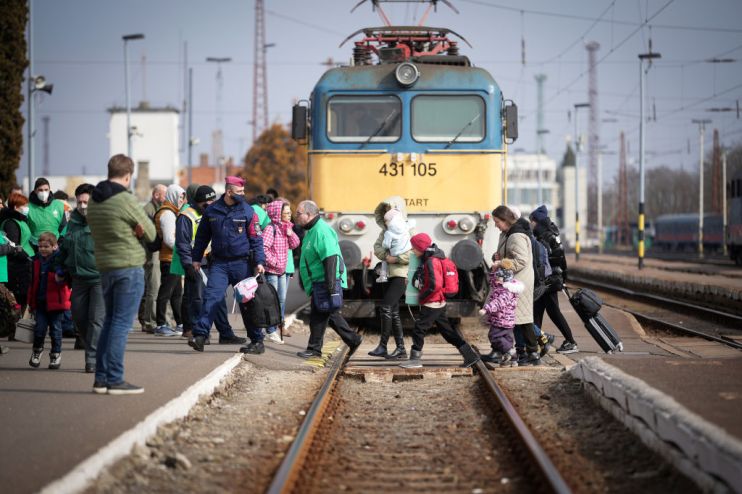As Russia triggers needless tragedy, we need to defend our global stability

The lives lost so far in Putin’s pointless and tragic war are a terrible price for Ukraine, and innocent Russians. But the collateral damage of a land war in Europe will soon begin to spread far beyond razed Ukrainian villages and the flattened streets of Kharkiv.
War costs billions every day. And the response – unprecedented sanctions targeted at Putin and his cronies – will cause pain in many different ways.
The Russian economy is already beginning to suffer. Over the coming weeks, the effect of sanctions will truly kick in. The list of Western companies pulling out of Russia, from Apple to BP, is already becoming an exodus. Russian airlines will be unable to secure spare parts; shortages will hit supermarkets. Everyday life for Russians will look very different.
Sanctions will also hurt us here. British businesses that trade with Russia have already felt the immediate hit as markets are cut off. A firm in my community has lost 90 percent of its turnover. And all of us will feel the effect of rising prices.
Petrol prices are already well above £1.50 a litre, since the price of crude oil is at its highest since 2014. And it’s not just fuel and energy. Wheat and aluminium are at prices we haven’t seen for 14 years. Global fertiliser prices are up too, which will affect the price of corn and wheat, and make essentials in supermarkets here more expensive. That all affects inflation – which was already pushing a generational high of 7 per cent.
But the biggest price we are going to have to pay is shoring up the uncertainty of the next decade. A world with a higher risk of a major conflict is a very different world, and one where the free and open global economy is undermined. There is a growing threat of international crises snowballing into one another; our world is more enmeshed than ever as a result of the digital systems which bind us together, but that also means instability in Russia can flow into anxiety in China.
The question is how the UK can strengthen ourselves in this new era. We need to ask how we can build a more resilient, defensive economy.
We will need increased defence spending – and encourage our allies to do the same. Reversing the cuts in Britain’s army won’t come cheap. But this isn’t just about us. Our forces train others and extend our influence beyond our borders, giving us strategic depth.
The example is being set elsewhere. Germany has pledged to up its military spending by €100bn, and France looks set to increase its military spending further. We should welcome this and work more closely with them. Defence spending isn’t a luxury, but a necessity. It should not be the case that Western nations are doing this now, reactively, with fear lapping so close to our borders. There is little point lamenting the seeds that were not sown and instead we must ensure we do not fall into this trap again.
As the world changes, we will need to take other steps to adapt. The crackdown against dirty Russian money is long overdue, and must go further. As I’ve warned since 2018, harbouring stolen cash sustains autocratic regimes and undermines our national security.
We also need to think twice about relying on nations run by hostile dictators for critical goods. Russia produces about two-thirds of the world’s ammonium nitrate, and has already announced an export ban to protect its own farmers. Both the government and businesses should be asking how they can make their supply chains more resilient to disruption.
The reward of these efforts will be a more secure and stable society which enables freedom, innovation and enterprise to prosper.
The events of the past week have provided a moment of rare clarity and a reminder that foreign policy isn’t about foreigners – it’s about us. And today it matters more than ever. Defending freedom and democracy comes with a price. It is one we must learn to pay.